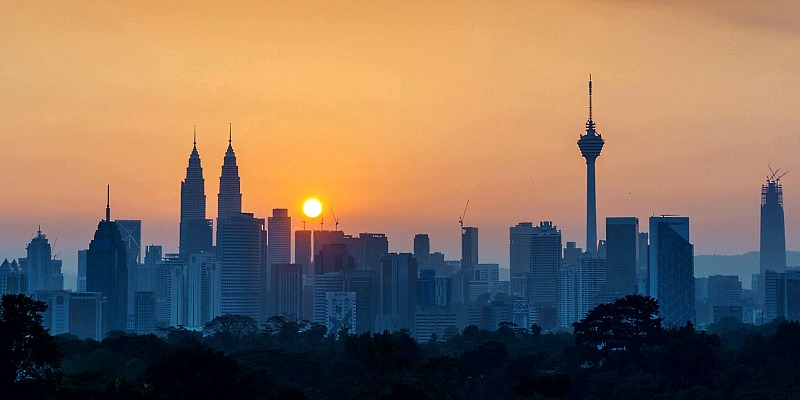Well, the world is in for another tough year ahead, but thankfully things don’t look that bad over here in Malaysia!
IMF managing director Kristalina Georgieva is downbeat about the global economic prospect this year, saying a third of the world’s economies will head for recession this year. Half of EU’s member states will be badly hit while the US’s economic expansion will slow to 1%, although China’s anticipated 4.4% growth will be better than last year’s 3.2%.
IMF has projected the world’s GDP to expand by 2.7% this year, a shade poorer than the 3.2% for 2022.
IMF statistics show that the US, UK, Japan, EU and other developed economies are set to perform badly, managing only a humble 1.1% growth. Meanwhile, China is expected to grow by 4.4% while the average for Asean-5 is 4.9%.
So long as the conflict between Russia and Ukraine remains unresolved, and China continues with its lockdown policy because of the pandemic, global economic activities will slow far more drastically than anticipated.
But, with China now determined to lift its lockdown measures and travel restrictions, the global economy is set to receive a much needed boost, although there might be immediate backlash from countries worrying about the infiltration of mutant virus variants following China’s sudden reopening.
Over the long term, China’s manufacturing sector will be back to its pre-pandemic vibrancy and the crisis of disrupted global supply chain due to slowing Chinese exports over the past two years will dissipate.
There are three major factors that may imperil global economic stability.
Firstly, with China about to lift all its travel restrictions, the impact from stalled production will be gradually removed. As a consequence, IMF will very likely revise its global economic outlook upward during the first quarter of the year.
Secondly, the supply shortage in oil, natural gas, coal, fertilizers and major agricultural commodities following the economic sanctions and export bans imposed by the West on Russia is not expected to be resolved any time soon, hence the IMF warning that a third of the world’s economies will head for recession this year.
Thirdly, the globalized inflation is expected to continue or even worsen this year.
Besides the US and countries heavily dependent on imported oil and commodities, which have been specifically singled out by the IMF, the other underperforming countries are mostly EU states involved in the war between Russia and Ukraine, including Germany (-0.3%), Italy (-0.2%), the EU (0.5% overall) and the UK (0.3%).
With these major economies weighed down by economic depression, it is difficult for developing or third world countries to buck the prevailing downtrend.

In the meantime, while the globalized inflation might take a breather following the intervention by governments to tighten their monetary policies (by raising interest rates), inflation will remain at relatively high level of 6.5%, although it is an improvement over last year’s global average of 8.8%, with a more significant relief to 4.1% expected only next year. But even that is still a little too optimistic.
While monetary policy could help stabilize goods prices and keep inflation at bay, we have said over and again in the past that a weaker currency does not augur well for imports, allowing an “imported inflation” to seep in, with prices of imported goods hitting the roof.
Although a soft ringgit has helped boost the country’s exports, as seen in the RM31.7 billion trade surplus in last September alone, do bear in mind that raw materials for our exports are still largely dependent on imports.
Moreover, we do not export everything we manufacture, while the trade surplus earned by exporters may not directly benefit the people in the street.
Prime Minister Anwar Ibrahim will table the 2023 Budget next month. As said earlier, monetary policy is meant to keep prices steady, and the government’s fiscal policy should be established upon the goal of alleviating the immediate financial pressure of ordinary Malaysians owing to the rising cost of living.
The Budget reflects the ultimate implementation of the government’s fiscal policies and comprises the three government policies in tax collection, fiscal expenditure and budgeting with the primary objective of achieving the goal of regulating growth in domestic economic activities based on the nature, functionality and fiscal balance of the government’s fiscal policies.
This includes achieving the targeted GDP expansion, stabilizing the economy, fair distribution of allocations, balanced development, as well as equitable resource distribution that conform to the country’s mid- to long-term development goals and relieving the financial pressure of the rakyat through subsidies and other forms of allowances.
On Tuesday, the Federation of Malaysian Manufacturers (FMM) urged the government to support R&D and innovation in a bid to promote industrial transformation, through the provision of various assistances, allocations and incentives in the 2023 Budget. This will in turn boost the country’s overall economic development from where the government grows its tax revenue.
The content of the 2023 Budget will likely take cue from what was tabled by former finance minister Tengku Zafrul Tengku Abdul Aziz.
The Anwar administration is facing the dual challenges of having to relieve the financial burden of the people while keeping the momentum of mid- to long-term economic growth intact.
IMF has estimated Malaysia’s GDP to grow by about 5% this year, well ahead of the global average of 2.7%.
Well, the world is in for another tough year ahead, but thankfully things don’t look that bad over here in Malaysia!
ADVERTISEMENT
ADVERTISEMENT


































